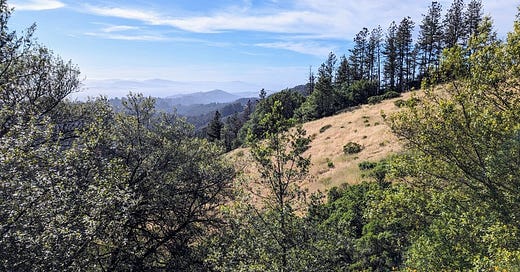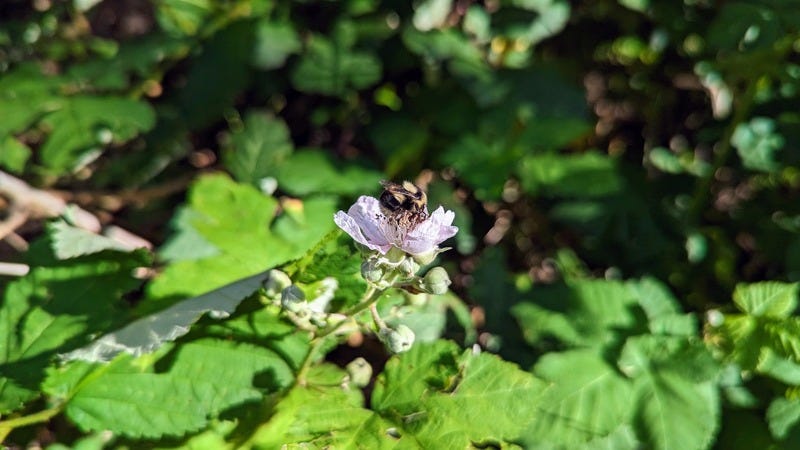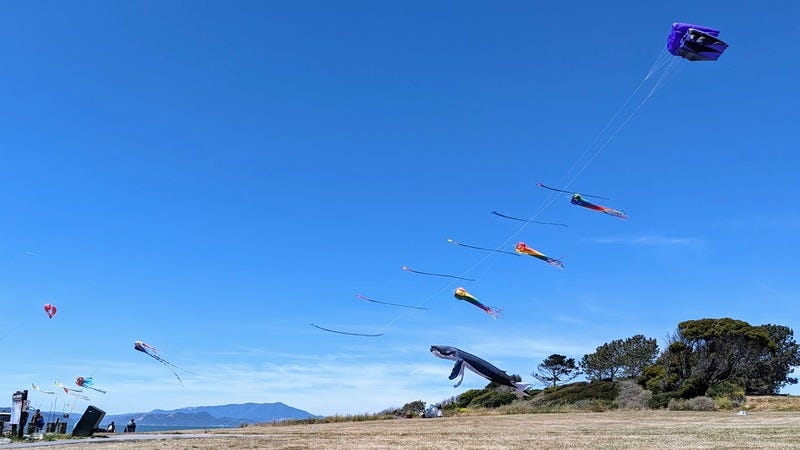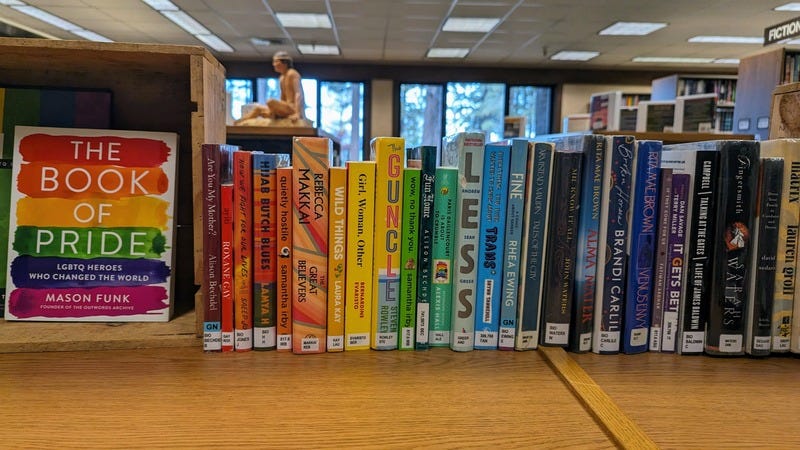I wrote about what having extra breathing room means for my aikido practice, sharing the Japanese word yoyuu meaning something like elbow room, margin, surplus. But like many aikido concepts, I find myself thinking about yoyuu off the mat quite a lot, and what extra breathing room means in terms of work and capitalism.
I’ve observed that capitalism strives to fill up all of our extra room. Most jobs would like to take up all your extra breathing space in your life if you let them.
We talk about full-time jobs as if anyone should be able to do eight or more hours, five days a week. Many full-time jobs require more hours than that. Some people seem to thrive under such a system. We all know someone who’s worked 15 hour days regularly for decades. These people sometimes consider their work their main identity and do well with it.
So, by comparison, if you’re not even able to work an eight-hour day, in my experience, it feels shameful, isolating, and inadequate. It feels like society has judged that I’m not good enough any more. I’ve worked 20 hour days in my life, when I was in college. But my body and mind have changed. I’m no longer able to do that. And I’ve accepted this about myself.
Especially for work that is creative or generative in nature, spending a large number of hours at a set time can be unrealistic. Do you think there is a direct correlation between the number of hours spent stressing over a problem and your productive output? Your boss probably does. Even the words “productive output” are questionable. What does it really mean to be productive?
For most jobs, productive is basically whatever your boss says you should be doing.
But if you’re your own boss, if you’re a freelancer, run your own company, sell products, or teach classes, how do you define your productive output?
I consider being productive helping people live a better life.
If I worked at a marketing agency, and spent eight hours building web pages, my employer might consider that very productive. But I also consider this in terms of, am I making someone’s life better?
If I instead spent one hour giving supportive feedback on someone’s writing, I might be making a much bigger impact in the long run. But that’s not really how we see it in terms of our capitalist system. I get paid much more to build web pages for eight hours than to edit writing for one hour. Does that mean it’s less worthwhile?
Absolutely not.
I also don’t get paid for the space and time it takes me to rest so I am able to be generative and supportive. Rest is a really important part of a practice, something like aikido or writing, something I plan to return to many times in my life.
What I consider a lifelong practice is something that’s important to me, but something I may not necessarily do every day of my life. Something I’m not necessarily getting paid for. And something that our society doesn’t tell me is the most important thing I can be doing with my time.
We can sometimes feel very guilty if we step away from a practice. It can feel like we’ve lost it forever if we don’t write or practice aikido for a month or two. And after some amount of time, it’s true, you’ve left the practice and it’s no longer part of your life.
But part of every lifelong practice is the ability to go back to it again, and again, and again. And being able to trust yourself that you can step away when you need to, if you got sick or you’re having a hard time, or if circumstances in your life mean you need to take care of yourself in some other way, that’s important.
Then, still being able to make space to return to your practice is the key.
Here’s where we get back to yoyuu—the idea of having a little extra space, to be able to be creative, generative, and focused in the moment. All of these good things can’t happen if we’re sick and stressed, working to the utmost extent of what we can possibly do. That’s a recipe for becoming burned out.
If you can, you have to step back and do less, and once you recover that margin, you’ll be more able to focus on the practices that are important to you.
wrote recently on My Long Recovery about doing only 50% of what one is able to do every day. This idea of limited effort, especially during Long Covid recovery, allows your body to rest and recover, so you’re able to do more in the future. I think this is a good approach for creative practices as well—to intentionally do less than your maximum so you’re able to continue for the long run.Yoyuu in aikido does not mean continuous effort. I think of the word as relating to the pause or separation between techniques. That space between tasks is where that feeling of extra ability comes from. This is exactly the time that capitalism tells us is worthless. If an hour isn’t billable, what does it even mean? But, it can be really necessary for a creative practice to have an hour in which you do nothing. That hour has value, we’re just trained not to see it that way.
The way I apply yoyuu to my aikido, at least currently, is trying to pause between techniques, creating a separation between one technique and the next. This is for my benefit but it’s also for the audience’s benefit, so they can see my technique crisply and cleanly, and they can understand where one technique ends, and the next begins.
If I can create a crisp separation between other projects in my life, if I can approach one with an open, confident mind after putting the previous one down, I’m able to focus more.
I sometimes feel the most panicked when I’m trying to do multiple things at once. Clicking from one browser tab to the next without having any idea of how I got there or where I’m going. This appearance of clicking through to many different things looks like I’m busy and productive.
But what does “productive” even mean if I have nothing to show after hours of stressing myself out?
In our jobs we are sometimes expected to show up with the tools to succeed. I’ve gotten some of the tools for being successful at work from martial arts practice. In this unpaid practice, I learn some of the skills to be focused, able to get things done, and to have confidence in my own ability or the lack thereof. By becoming more aware of my body, mind, and ability, I translate these skills acquired through martial arts practice to other areas of my life.
Because most of my work is freelance these days, I’m able to have a lot of control over what I take on and when. This has allowed me to heal from stressful, full-time employment to some extent. I’m able to demonstrate respect for myself and my ability by telling my clients when I need sick time and how I can solve their problems within a time frame that works for me. When I am working, I’m very focused and motivated to solve the problems I’m working on. I try to be as efficient as I can. I’m not doing busy work. I don’t have a quota of hours to fill in a day to earn my salary from an employer.
I do the minimum work I need to do to solve the problem effectively, using the minimum effort required for the creative output needed.
This is almost exactly what the motto of Kokikai Aikido says: “Minimum Effort, Maximum Effect.” This is sometimes misinterpreted to mean as little effort as possible. Sometimes, for the desired effect, you have to expend a lot of effort and that is okay. Minimum effort for maximum effect simply means that whatever effort you expend, try to make it have a proportionally bigger effect.
I use a similar philosophy for my work. I try to minimize my effort, minimize my costs to my clients, and do things efficiently. But I still expect my output, whether it’s a video, a graphic, a website, or a tech solution, to be effective, eye-catching, and meet my clients’ needs. That’s maximum effect. I want my projects to mean something. I’m not doing busy work.
That’s what I really appreciate about freelance work. It allows me to step away from the busy work expected under capitalism. My work allows me to prioritize taking care of myself so I’m better able to show up for my clients and for myself.
By doing the work I’m able to do and not more, I’m gifting myself yoyuu, extra ability to do the things that are important to me.
One reason a full-time job can be so draining is that most employers try to get the maximum amount of effort out of you, by stressing you out and making you comply with arbitrary expectations. And when you’re working full-time, used to receiving a salary, you may be reliant on the money for your lifestyle and it’s very, very hard to make a change to do something else.
I’m not saying it’s easy to live with a full-time job, rather the opposite. It’s harder than most people realize, especially if you become burnt out, disabled, and/or no longer able to work the same job.
That doesn’t mean that this is an inherent failure of your body and mind. I think it means our system of employment is very challenging for many people. For some disabled people, it is impossible.
If you’re not able to keep up with your practices along with full-time employment, that’s very understandable and relatable. I’ve been there too. I think the important thing is to be gentle with ourselves and realize that all of us have a limited ability to do all the things we want to do, and that’s okay.
Being able to step back, take a break, and make a separation between activities is important. Taking down time can be crucial to being able to return to your practice.
If you’d like to return to a creative practice, but don’t feel like you have the time or ability, just take it one tiny step at a time. Less than you’re able to and no more. And eventually, if you don’t push yourself too much, you’ll get where you want to be.
Hopefully, you’ll get there with room to spare.
Thanks so much for reading! Let me know what you think in the comments.
Take care,
Rey











Love this post! And a good reminder for me, too, to not only focusing on leaving space during recovery, but make it a lifelong practice. Thanks for sharing!
Perfect timing for me as well. Since I left my marriage I've been working so much less and VOILA! I'm healthier. PTS symptoms way down. Happier. I posted this on Linked In and emailed it!